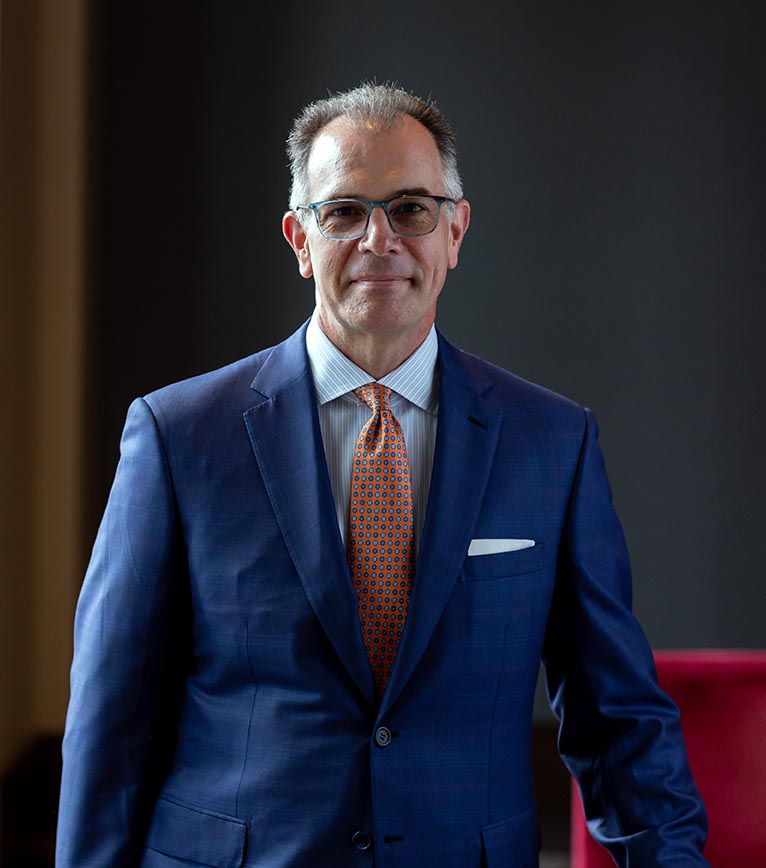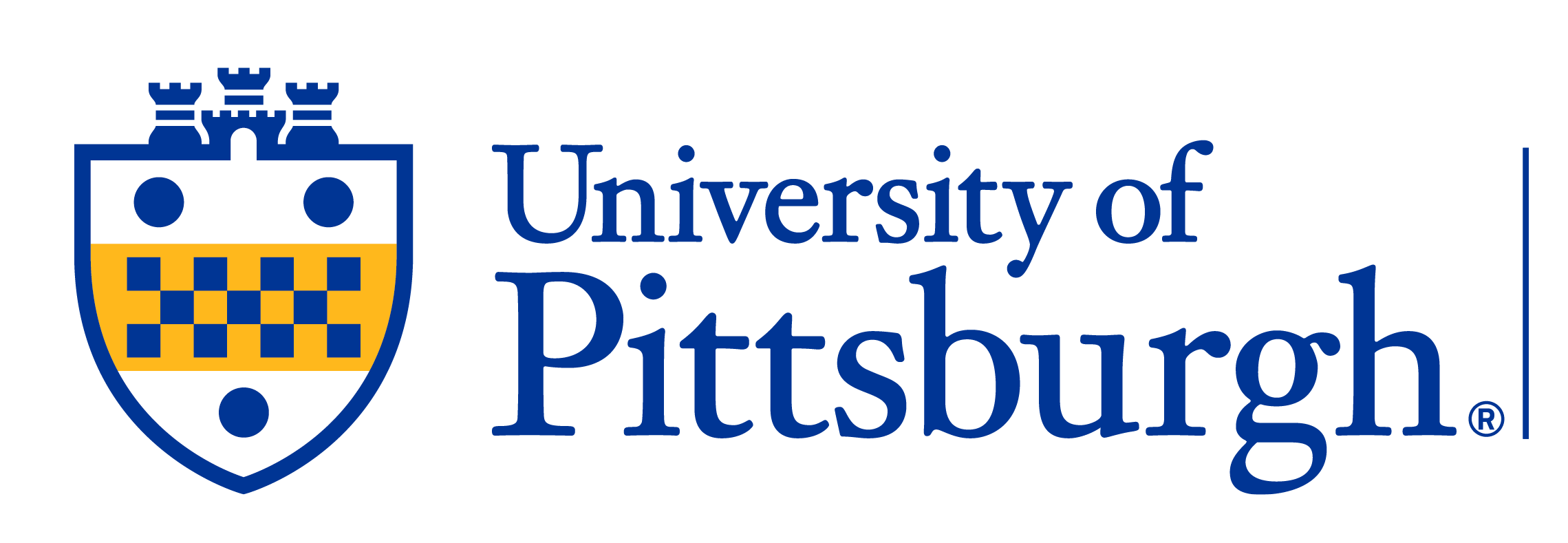ABOUT //
Innovative
individuals
Working together to achieve big goals
At the University of Pittsburgh, we are passionate about interdisciplinary education, and our students experience it from the beginning. Interprofessional care better meets the needs of the whole patient. Teaching our students to work as a team will prepare them to be effective collaborators in their careers.
Learn more:
The Office of Interdisciplinary Education develops and implements strategies for teams of specialists to drive improvements in health care by supporting opportunities at the student level to learn in blended teams. Through programming, research, experiential learning and community engagement between the health science schools and many other partners across the University, the Office of Interdisciplinary Education aims to promote a team-based care model early in a student’s journey, preparing them to work in the ways that health professionals collaborate across fields.
Our faculty come from all areas of the University. We are committed to:
- Team-based health care and education that encourages a level playing field for care delivery where everyone is supported and valued.
- Putting the community, patients and their goals at the center of our work.
- Communication that respects differences and rewards healthy debate.
- Including our entire community and creating a sense of belonging.
- Innovating, sharing and evaluating our efforts continually.
- Building new models of care that improve health.
- Inspiring and developing leaders who value cooperative interdependence and interdisciplinary health care.
- Improving our communities locally and globally.
The journey
Our progressive process includes learning critical concepts of team-based and interprofessional care focused on the patient’s goals, which brings together the expertise of all practitioners.
Students learn as they work with other disciplines throughout their programs–in the health sciences as well as in schools including the Swanson of Engineering, the School of Social Work and others, depending on the program. We start early in the curriculum with case-based learning in smaller groups, progress to standardized patients with team learning for a real-world feel, and then in the clinical and community settings, all proctored by skilled faculty from our many disciplines. A strong emphasis on community engagement and understanding the social determinants of health is vital.
As students move further into their disciplines, they can select team-based rotations that focus on the area that interests them most, such as a craniofacial team that cares for children with facial deformities, an interdisciplinary trauma team, an intensive care unit, or a community engagement center to partner with our community members who have the highest risk for disease.
By the end of their program, they will have spent significant time with other health disciplines, understood the critical roles of each practitioner, and learned about the patient and family’s needs. They also understand how their field can work together with others to make a difference in the health of everyone.
This is the true meaning of the community being our classroom as we partner with the community to fully engage and understand how we can best work together. Students make a difference and learn at the same time so that they can advance their careers and bring an exceptional skill set to their profession.
We aim to send our students into their careers prepared to consider all of a person’s needs and to recognize that respecting and valuing the contributions of their peers across various disciplines can help optimize health and wellness.

Bernard J. Costello, MD, DMD
Bernard J. Costello serves as the Associate Vice Chancellor for Health Science Integration and works within the senior administration at the University of Pittsburgh and UPMC. He has been a full-time faculty member at Pitt since 2001 and is the former dean of the School of Dental Medicine. Costello is a tenured professor of Oral and Maxillofacial Surgery and chief of Pediatric Maxillofacial Surgery at UPMC Children’s Hospital, where he is a surgeon on the cleft-craniofacial team. Costello earned his doctorates in medicine and dental medicine from the University of Pennsylvania (Penn). Following his residency training at Penn and Children’s Hospital of Philadelphia, Costello completed a pediatric craniofacial fellowship at the Posnick Center for Facial Surgery and Georgetown University Medical Center.
In his role as associate vice chancellor, he is charged with driving team-based programming across the university in areas such as curriculum development, online/hybrid education, clinical team development, community engagement, research, clinical care and interprofessional educational platforms. As director of the Center for Interprofessional Education, he built cross-institutional engagement and platforms for students, faculty and staff.
Costello is known for his translational research in regenerative medicine strategies for craniofacial deformities and has been a primary investigator and collaborator for projects and multi-institutional grants aimed at developing regenerative technologies with Pitt’s Center for Craniofacial Regeneration. He also authored novel guidelines for responsible pain management that focus on a non-opioid approach and has been a strong public advocate for measures to fight the opioid addiction crisis. He has published numerous peer-reviewed publications and has served as an editor and authored content for several key texts focusing on craniomaxillofacial reconstruction.
Costello has also served in leadership positions with a number of professional associations, boards and foundations. He is currently the president of the American Board of Oral and Maxillofacial Surgery, and is the former president of the American Academy of Craniomaxillofacial Surgeons and the American Cleft Palate-Craniofacial Association. Costello regularly lectures worldwide on pediatric facial disorders and craniofacial regenerative translational research. He also treats facial injuries for the Pittsburgh Penguins Hockey team in conjunction with UPMC Sports Medicine.
People
- Bernard J. Costello
- Barbara Barnes
- Everette James
- Melissa McGivney
- Victoria Hornyak
- Renae Barger
- David Beck
- Betty Jean Braxter
- Mario Browne
- Katherine Brownlee
- Trisha Ann Cousins
- Jennifer Corbelli
- Kelsey Cowles
- Mary Goldberg
- Mary Hawk
- Andrea Hergenroeder
- Mary Lou Klem
- Nina Markovic
- Elizabeth Mulvaney
- Jean O’Donnell
- Ben Reynolds
- Loren Roth
- Danny Rosen
- Elizabeth Schlenk
- Pamela Smithburger
- Reed Van Deusen
SPOTLIGHT
Mary Goldberg
“I want students to be the drivers on what they would learn most from other professionals by collaborating,” Goldberg says. “Topics like pain management, disability studies, emergency response and assistive technology are all very collaborative.”
Let’s work together.
Health Sciences
Office of the Senior Vice Chancellor for the Health Sciences
Scaife Hall, Suite 401
3550 Terrace Street
Pittsburgh, PA 15261
General: +1-412-648-8975
Donation: +1-412-647-8301

